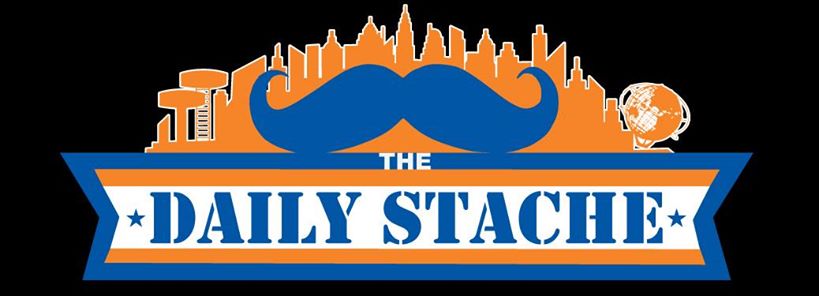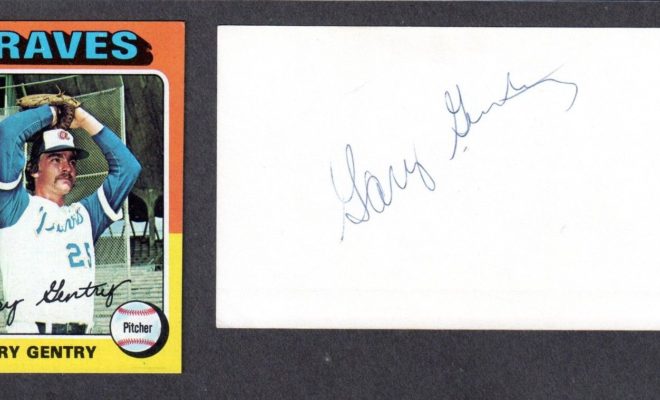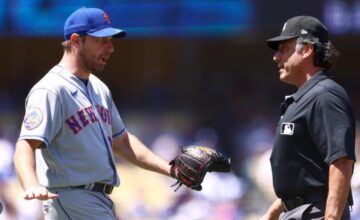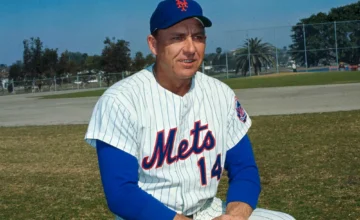Getting to meet a player is always special, but when you are a youngster, there are few things more coveted than a player’s autograph. Sure, we’d all love a Tom Seaver or Mike Piazza, but when you’re in grade school, any Met player will do. I’m here to tell you about my meetings with two Met players, as well as how I may have been a jinx.
For those who don’t know me, a little background. I grew up on the South Shore of Long Island in a little town called Merrick, in Nassau County. Back in the late 60’s to early 70’s, Merrick had three elementary schools, and shared a number of Junior High Schools (before the days of “middle school”) and three High Schools with the neighboring villages of North Merrick, Bellmore and North Bellmore. There were also three movie theaters, a bowling alley and a number of fast food restaurants in town. Merrick also had a number of churches and synagogues, and practically everyone belonged to a house of worship that suited their faith. And like most families, we belonged to one, Merrick Jewish Center just off of Merrick Road on Fox Boulevard.
As I may have stated before, I am the youngest of three sons. My father didn’t care much for baseball, although my mom was a lifelong Brooklyn Dodger fan. I came to my love of the Mets through my mom’s brothers (two Giant fans, one Dodger fan, at least before 1958) and one of my cousins. I’d go to games with my little Spalding Rico Petrocelli autograph model glove, sitting in the Upper Deck at Shea expectantly hoping for a foul ball that would never come. And I’d go to games in the hopes of getting an autograph, but sitting that far up in the stands never presented an opportunity.
Now, as I said before, my dad was never a baseball fan (at least not until 1984). So imagine my surprise in the early fall of 1972 when my dad came home to take my brothers and I to the synagogue for a special event: New York Met starting pitcher Gary Gentry was coming to Merrick Jewish Center for a special Men’s Club event! We piled into the family stationwagon and drove the short distance from our house. The place was packed! We were able to grab 4 seats in the back, while they showed highlight films from the ’69 World Series and the 1971 season (the 1972 promo film hadn’t been finished yet). It seems that one of the members of the synagogue had a friend in the New York Mets front office who arranged for the evening. After what seemed like an eternity, the MC stepped up to the mic and announced “Let’s give a warm Merrick Jewish Center welcome to New York Mets great Gary Gentry!” The place erupted.
After that was a blur. I recall Gentry speaking about pitching for the Mets and starting in the World Series in his rookie year. Then he took questions from the crowd. My dad suggested I ask something, but I was too shy. They then announced that Gentry would be signing autographs. So many other kids brought along bats, balls, gloves, yearbooks, programs, you name it. In our rush to get there, I’d remembered to bring….absolutely NOTHING! Luckily, one of the Mets personnel noticed some of us without anything to sign, so he handed out little blank business cards with a Mr. Met logo on them. We got in line and waited what seemed like an eternity. Finally, my turn came, I stepped up, Gary Gentry signed and then…it was over. Not even a millisecond. Not even a nanosecond. That was it. Well, at least I had Gary Gentry’s autograph on a little business card to show all my friends in the third grade.
The next year was even more exciting. The Mets actually made it to the World Series, and looked like they had a shot until they lost the last two games in Oakland. It was okay. We’d be back next year. And this time, I knew they’d have an event at the Merrick Jewish Center Men’s Club. I was right. This year’s Mets great would be catcher Duffy Dyer. And this time, I was prepared. As we came to leave, I grabbed my favorite bat and my Spalding Rico Petrocelli autograph glove, all ready to be signed by Duffy Dyer. Except that didn’t happen. My mom stopped me in the hall and said “You’re not taking those to the temple. What if they get lost?” Well, at least I knew I’d have a second autographed business card to add to my collection. We came to the synagogue a little earlier, just before they started the highlight films. Again, it was the ’69 World Series, along with the 1972 season (again, 1973 wasn’t ready yet). Finally, Duffy Dyer stepped up to the microphone and spoke about his career, just before opening the floor to questions. I wasn’t going to chicken out this year. I was ready! I got in line and when it was my turn, I got to ask Duffy the question I needed answered: “How did it feel to play in the World Series this year?” And I immediately learned the first rule of reporting: do your homework.
Duffy looked at me puzzled for a second and then said “Well kid, I wouldn’t know. I guess you could ask Jerry Grote cause he played every inning of the seven games while I was on the bench. I did get an at bat in game one of the ’69 series though.” And I walked, no crawled back to my seat amid some chuckles from other kids who knew that Duffy didn’t get to play in the ’73 post season. But there was a little silver lining. As I went up to get my autograph on my Mr. Met business card, Duffy looked up, smiled and shook my hand. “Good question, young man. I hope I’ll get a chance to play in the 1974 World Series.” That really made my day. Thanks again Duffy Dyer, wherever you are.
Unfortunately, neither Gentry nor Dyer had many Met memories left to be made after I met them. Gentry was traded to the Braves along with reliever Danny Frisella (who died a truly tragic death) for second baseman Felix Millan and starter George Stone shortly after I met him in 1972. Gentry pitched only three more injury filled seasons for the Braves before calling it quits at 28. Dyer lasted a little longer. He spent one more season in orange and blue before getting traded to the Pirates for speedy outfielder Gene Clines after the 1974 season. Duffy retired in 1981 after spending 14 seasons predominantly as a backup catcher. I don’t know if I was the jinx, but I always found it odd that there were no more Mets players coming to the Merrick Jewish Center Men’s Club. As for the two autographed business cards, I kept them on a shelf in my bedroom for many years, but at some point along the way, they got lost. But I still have those Met’s memories.





